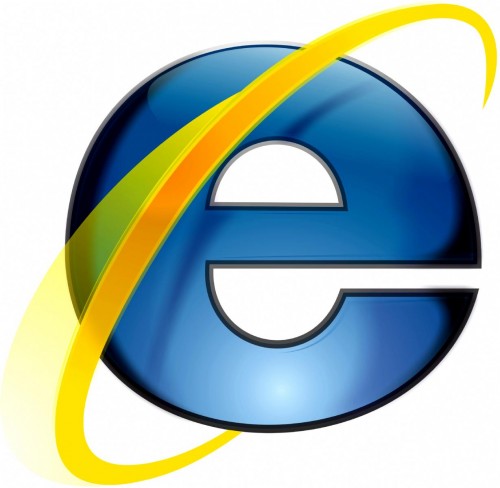Oh the wonderful world of web browsers! Those handy yet somehow invisible pieces of software (ask 5 friends what browser they use to get online and maybe one or two will tell you without any hints) open up the entire world to us in more ways than we initially see with our eyes. If you are reading this and you don’t know what I’m referring to, ask yourself what icon you click in order to get online. Is it a big blue “E”? Is it a fox wrapped around a globe? Is it a big red “O”, or does it look like a compas? Maybe it reminds you of the old game “Simon Says”, only now it’s round. Those are all icons for browsers such as Internet Explorer, Firefox, Opera, Safari, and Chrome.
Internet Explorer has been built and owned by Microsoft since the early days of operating systems using graphical user interfaces, or GUI interfaces for short. Firefox is owned by the Mozilla foundation, which grew out of the ashes of Netscape Navigator, a browser that truly gave Microsoft a run for it’s money way back in the early days of browsing the world wide web. Opera is owned by a company in Europe and up until recently, has had a very loyal, staunch following due to it’s multipurpose features and speedy webpage rendering. Recently moving to the Chromium platform has it’s desktop users leaving in droves. This author is one of them. Safari is built and owned by Apple Corp, and has been the staple browser of choice for their computers for many years. They have had a Windows version out now for quite awhile as well, which is great for webmasters wanting to test their code in a somewhat Mac-like environment. The newcomer to the scene is Chrome, built and owned by Google, otherwise known as the most successful search engine to date. There are many other browsers out there as well, but these are the Big Five.
Of these five, one of them has the notorious reputation of being the biggest security hole currently known to Windows users. Unlike the other four, this browser makes heavy use of activeX controls, which the browser’s founder claims grants added creativity and interactivity to websites that webmaster can build. This level of creativity and interaction has been latched onto by many cyber-criminals over the years to infect millions of computers worldwide! Even scarier, program developers for a wide range of products and corporations have decided to code only for this browser, refusing to support other browsers that don’t suffer from this vulnerability. ActiveX is merely the biggest and most well-known of the open doorways through which criminals have had their worms, viruses, and trojans pass.
This particular browser, seemingly more than the other four, has also suffered from more vulnerability attacks than any other browser out there to date. This time, the zero-day attack used, made use of a flaw found in literally every single version this browser has ever had, right down to the most recent and apparently safest version. Needless to say, this computer tech is both laughing and yet pulling hair out at the same time, as just this past week, had to reprimand yet another techsupport company for trying to force users to use an unsafe browser rather than one of the safer alternative choices. This particular company offers supposedly secure remote access that users pay for on a monthly basis! Still shaking my head over that one!
This browser’s company released a workaround for only TWO of their wide-range of browser versions a couple days ago, but has apparently released a patch as of today for this latest vulnerability.
The browser I’m speaking of, is Internet Explorer and it’s founding company is Microsoft!

If you are a software developer, web developer, or systems integrator, stop forcing your users into an unsafe environment and insist on making sure that all solutions work with any of the other four major browsers instead. Write in code that blocks IE from accessing your solution, with a warning and urging to get a safer browser, linking to the other four major options.
If you are a home user, business user, non-profit user or educational user, install one of the other browsers ASAP and import your bookmarks, cookies and settings and leave Internet Explorer in the dust! Your computer will thank you and so will your pocketbook as you don’t have to call in techs like myself as often due to threats downloading through vulnerabilities in your browser.
While it’s nice that Microsoft reneged on their claim that XP users would not get the update, I still urge ALL winXP users to switch to Opera, Chrome, Safari or Firefox as soon as you can! IE should only be used for windows updates by any windows operating system. It can’t be removed from the OS without severely impacting the file-system GUI, known as Windows Explorer. So don’t try to remove it.
So A) get this update! And B) Switch to another browser! Tell the companies of software you use that you will nolonger tolerate them placing you in an unsafe, vulnerable position online and that you insist on using a safer browser with their product. If alternative products exist that let you use a safer browser, switch to them. Be safe, and use your choices to stay safe as well.
